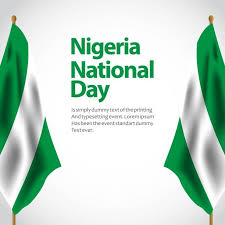As We Celebrate Another Independence Day
By Kabiru Danladi Lawanti
On October 4, 2008, the Daily Trust newspaper published my article titled “Nigeria: 50 wasted years”. That was some few years after I finished my university degree and was viewing Nigeria from the idea that Nigeria should have been better than what it was.
I was writing with anger (you sense that from the choice of words) on why Nigeria was not Singapore, Malaysia or Thailand after 48 years of her independence. Our thoughts then, were to open a conversation that could help to trigger our inner mind for sober reflections on what the country had become after these years.
Over these years, from 1960 to date, after escaping the British colonial hegemony, Nigeria had experimented with a parliamentary system of government, which the country inherited from the British.
However, the system lasted only 6 years and was scuttled by a group overzealous military officers. The military introduced the unitary system of government before replacing it with a presidential system.
There were divergent views on celebrating Nigeria’s independence. Yours sincerely believe that what we need is a sober reflection on what the country has become in this 63 years. However, there are a lot of people, who feel Nigeria is worth celebrating.
For instance, in 1960, there was no Abuja, the Federal Capital and the road linking it to Kaduna and Kano. We had only few universities in the 1960s, today we have over 70 public owned universities with hundreds of privately owned.
We had few public broadcast stations owned by states and federal government, today we have over 500 hundred TV and radio stations scattered all over the country owned both the state and private individuals. This, according to them is worth celebrating.
On the other hand, there are those who argue that independence celebrations should have come with gratitude and excitement of achievements. We should not be celebrating insecurity, NLC/TUC strikes, ASUU long strikes, CBN Governor in DSS custody, an Accountant General who was accused of stealing N109bn etc.
What they want to see is upward mobility, progress, improvement, growth and development in all ramification of socio-economic and political well-being of Nigerians.
However, looking at the condition of the poor today, the level of infrastructural decay, hyper-inflation, insecurity, unemployment indices (not the ones recently released by NBS) and abject poverty, the indices are enough to scare any right thinking Nigerian.
The scariest part is the attitude of our political class from 2015 to date. These are people who came with a promise of “change”, but in 2023, when they were leaving they left the country worse than how they met it.
Read Also:
While from 1999-2015 we were complaining about decay in infrastructure, stealing of public resources, what we saw from 2015 to date are a group of people in the corridors of power, with access to state resources, whose idea of governance was just a contestation for personalized unaccountable power – from the President, members of NASS, Governors and other elected officials they behave like emperors.
We saw clear lack of real capacity for leadership (where it exists it is just for personal aggrandizement). Under Buhari’s disaster leadership it became common to see leaders using their privileges or access to power to enrich themselves, their families and friends.
Recharge card sellers turning into billionaires, those who had access to the former CBN Governor making millions every day from dollar round tripping. While this was happening, Buhari was borrowing and mortgaging our future and that of future generations.
Our fear is that, after 63 years of independence, the Nigerian state capacity to defend its territory and provide internal security for its citizen is challenged by non-state actors. For over a decade now, ragtag militia terrorized Nigerian citizens with the government at the centre looking more and more helpless.
While boko haram has been decimated in the northeast, bandits and kidnappers are having a field day in states like Kaduna, Katsina, Sokoto, Niger, Zamfara and Kebbi. Just as IPOB and other terrorists in the middle-belt and southeast are doing.
Added to this was the political class non-challant attitude towards delivering administrative services and public goods like health and education.
With the adoption of bloodsucking policies from western financial institutions, the government has abandoned its citizens and hand them over to the whims and caprices of market oriented and profit making capitalists with no respect for service delivery.
In the process, they are putting the country’s future in jeopardy. Already there is an attempt by these economic hitmen to commercialise education and healthcare.
For us, to make meaning of our independence, our political class needs to come back to our senses. While 80-85% of Nigerians are struggling ends meet, the political class appear to live in earthly paradise. This is not good for any country.
As we celebrate our 63rd anniversary, we need to focus our attention to working for a country that can accommodate the poor and the rich by ensuring that we provide internal security for our people to live in peace without threat from terrorists.
We have to make efforts to address the out of school children that are daily growing with our population. We need to “renew” our hope in the government ability to provide public good – health and education. For no nation can grow when majority of its citizen are uneducated.
Happy 63rd anniversary.
Kabiru Danladi Lawanti
Department of Mass Communication,
Ahmadu Bello University, Zaria
















